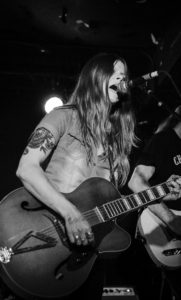

Sarah Shook doesn’t write music for fame or adulation, she writes because she has to. An outlet for emotional purging, the songs she creates – gritty and authentic – are part of her own internal healing process. And while her latest album “Years” may have aided in exorcising the personal demons of the North Carolina native, it is also helping listeners of her brand of twangy AmericHONESTa search for answers to their own questions about the confusing world circulating around them.
We recently sat down with Shook to discuss songwriting catharsis, going boots on the ground, and why it’s necessary for artists to be transparent in what they’re creating.
TrunkSpace: What emotions do you juggle with internally as you gear up to release new material to the masses and is it important to tamper expectations given that once its released to the world, so much of how it is perceived is then out of your hands?
Shook: I don’t make music to please anyone. I make music to exorcise my demons and heal. The people who listen to my songs and feel connected to me, this music is for them, too. Their pain and suffering, their failures and victories, are every bit as valid as my own. My band and I worked incredibly hard to make an excellent record with “Years,” not because we want accolades, but because we challenge ourselves personally and collectively to be the best we possibly can. That’s its own reward in many ways.
TrunkSpace: Is there ever a moment when you finish an album and you feel a sense of loss or sadness because the experience is over and those songs no longer require your attention? Is it difficult to let go of the creative in the process?
Shook: Hell no. These songs are my catharsis, I don’t get tired of howling out the same words night after night because this shit is real and at this point this is bigger than just me, this is about bringing some relief and catharsis to the people who show up for it. Shared experience is powerful.
TrunkSpace: “Years” has been out for about a month now. Creatively are you a different person than you were when you first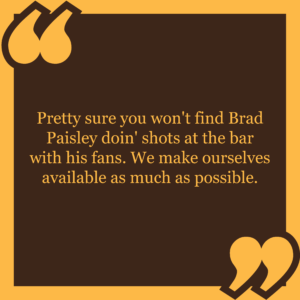 started writing the material for that album?
started writing the material for that album?
Shook: Creatively, no. Same old me. For better or worse. (Laughter)
TrunkSpace: From our perspective, there seems to be a revolution happening in country music with singers/songwriters pushing back against the polished, packaged country that has dominated the genre for the last decade or so. Is that an accurate reading, and if so, why are artists hoping to redefine the country sound and vibe once again?
Shook: There’s a mighty thirst to find something real in a sea of glittery bubblegum superstardom. People are looking for something that speaks to them because it’s authentic and from the heart. Pop country artists might be selling out stadiums, but the little people like us are out here, boots on the ground, working hard AF, connecting with people. Pretty sure you won’t find Brad Paisley doin’ shots at the bar with his fans. We make ourselves available as much as possible.
TrunkSpace: You describe yourself as shy. How does someone who is shy ultimately settle on a career where being in front of people, both physically and emotionally, is part of the job description?
Shook: I’ve come a very long way in a very short amount of time. As an introvert, after a shit ton of socializing, yes, I’m definitely gonna need some alone time to recoup. But I totally enjoy meeting new people and the chaos of touring life. Being incessantly thrown into new and unfamiliar territory with so many unknown factors, this way of life requires fast and lasting change in one’s way of thinking. You just gotta roll with the punches, keep your head on straight, and keep moving forward.
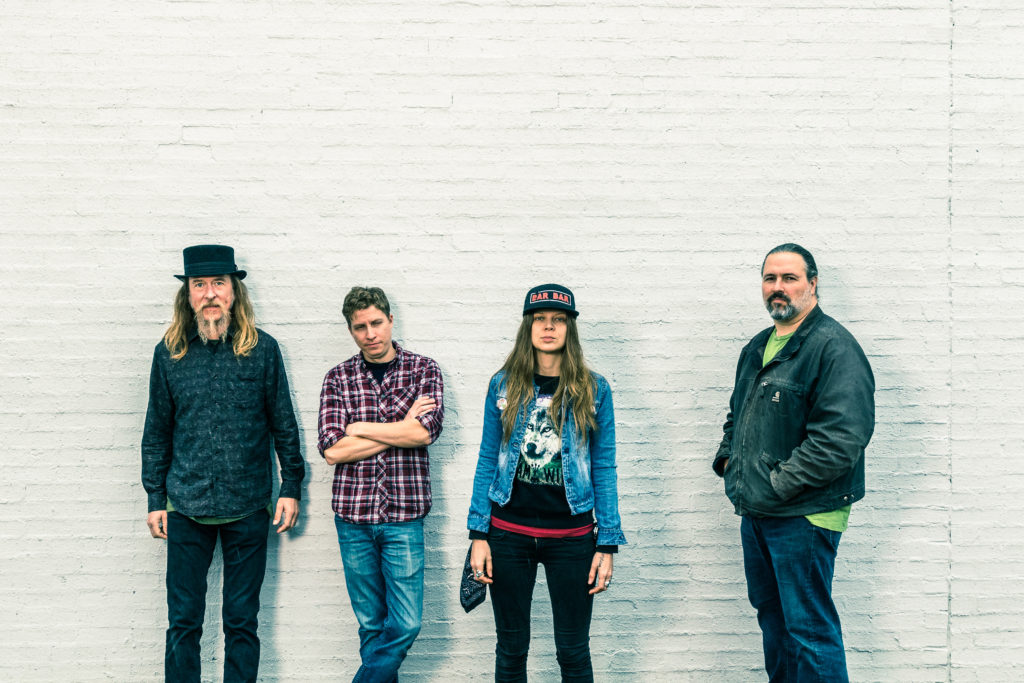
TrunkSpace: With that in mind, if you could spend the remainder of your career making a living writing and recording exclusively, could you walk away from performing in front of people or is there still a draw there?
Shook: I love touring, I love performing, and most of all, I love my bandmates. We’ve worked so fucking hard to get to where we are, I would totally be letting them down if I quit touring. I could never do that. They’re my family when I’m not home.
TrunkSpace: You seem to put so much of yourself into your music. On the lyrics side, do you ever feel like you’re saying too much about yourself and your experiences, and in the process, opening yourself up to third party dissection… especially in this social media age?
Shook: No. Artists need to be more honest and transparent in their art. I make mistakes, I’m not perfect, and when I fuck up I’m not afraid to talk about it.
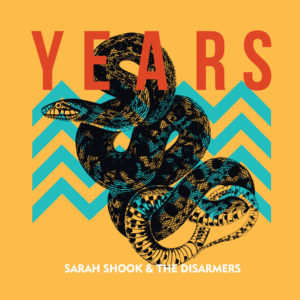 TrunkSpace: You have a great rock star aura about you, but really, the first “rock stars” with swagger were the classic country artists. What are your thoughts on persona and attitude when it comes to an artist’s point of view? Is it all part of the necessary equation?
TrunkSpace: You have a great rock star aura about you, but really, the first “rock stars” with swagger were the classic country artists. What are your thoughts on persona and attitude when it comes to an artist’s point of view? Is it all part of the necessary equation?
Shook: I don’t give a single fuck what anybody thinks about me. I know who I am. I know what my strengths and weaknesses are. I work really hard to better myself. It’s impossible to intimidate someone who has lived through the shit I’ve lived through and clawed their way kicking and screaming towards freedom and independence. Nobody is ever gonna keep me down again and there is no more liberating feeling.
TrunkSpace: We love great music, but within great music we are particularly drawn to great lyrics, the kind that make us curse the universe for not coming up with ourselves. What is a favorite line of yours that you have written and why?
Shook: “I didn’t come here to be seen, but I can feel your eyes burning holes in me.” Because I’ll never forget that feeling with that person in that moment at the bar. Ain’t desire a hell of a thing.
“Years” by Sarah Shook & the Disarmers is available now from Bloodshot Records.
Featured image by: Jillian Clark.


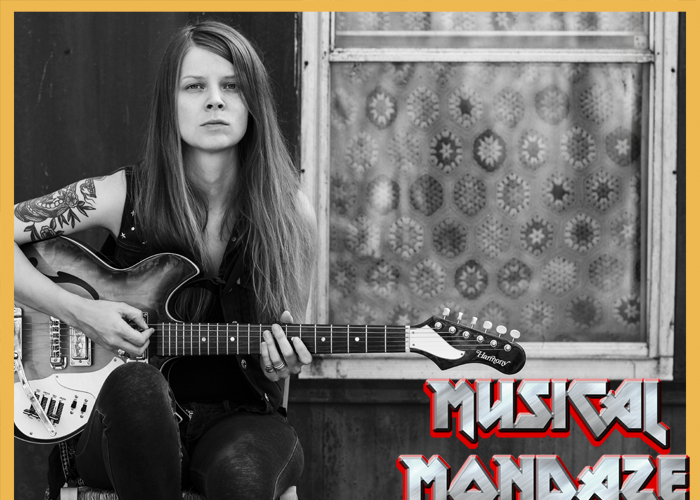
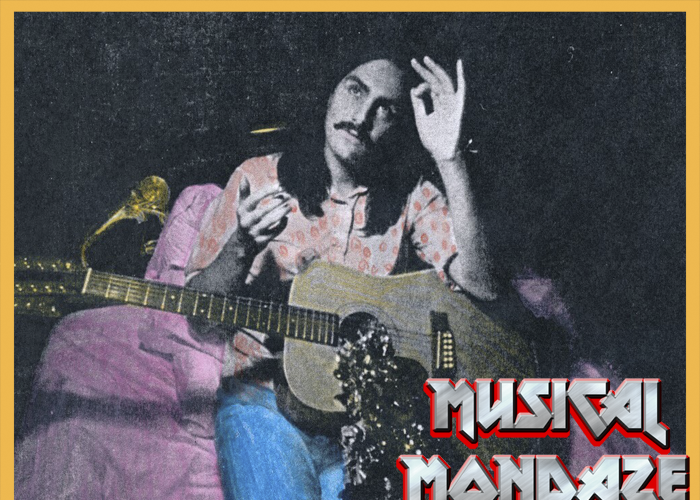
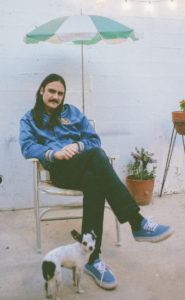
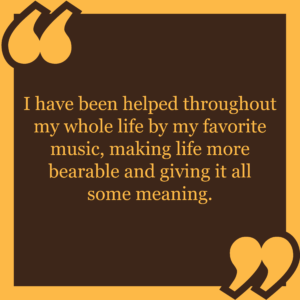
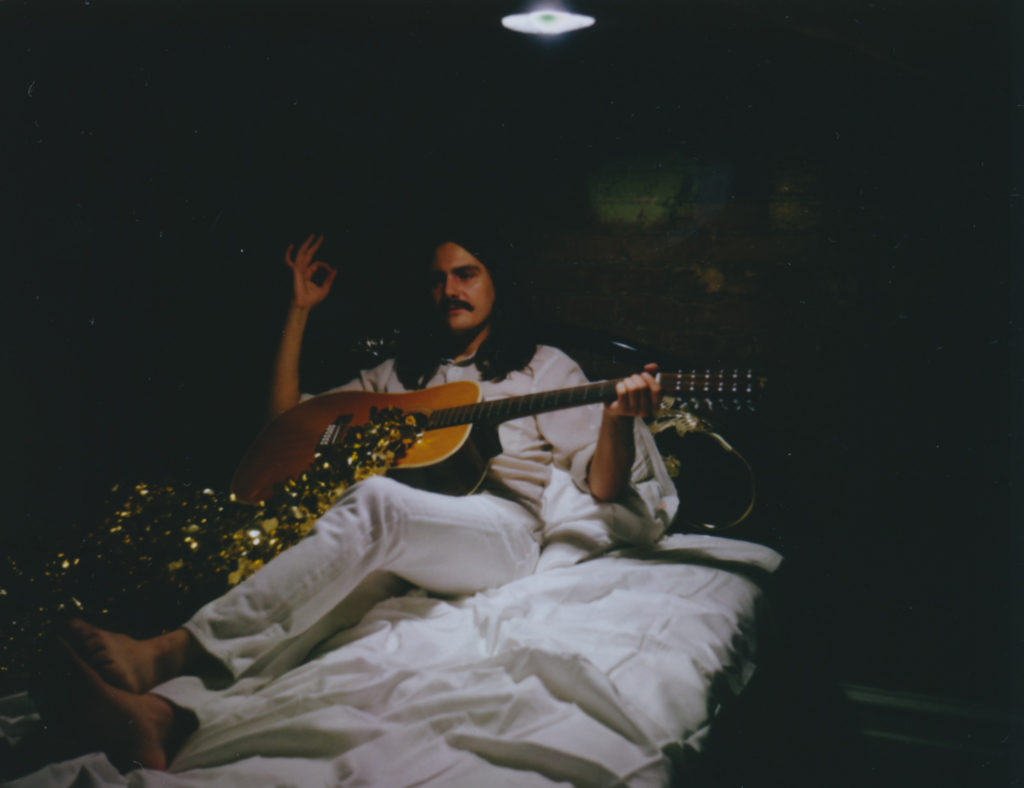
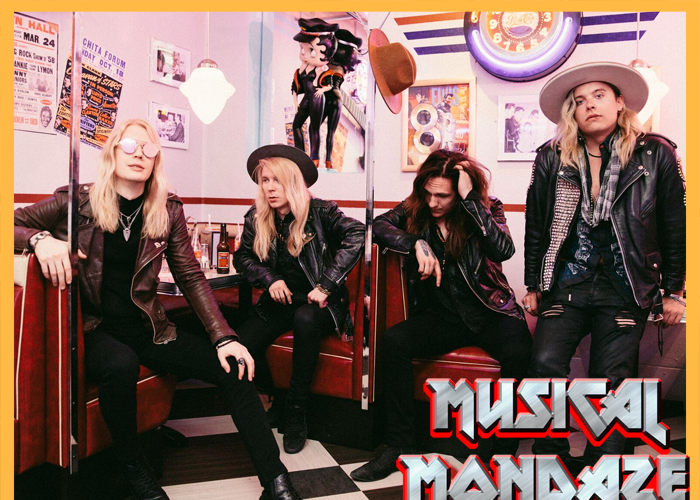
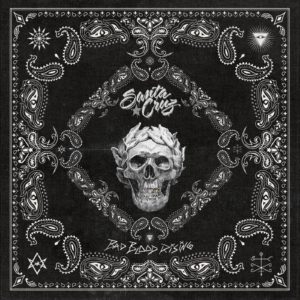
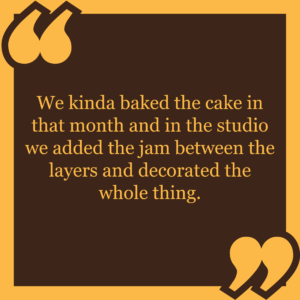 popular there today as it was say, 20 or 30 years ago?
popular there today as it was say, 20 or 30 years ago?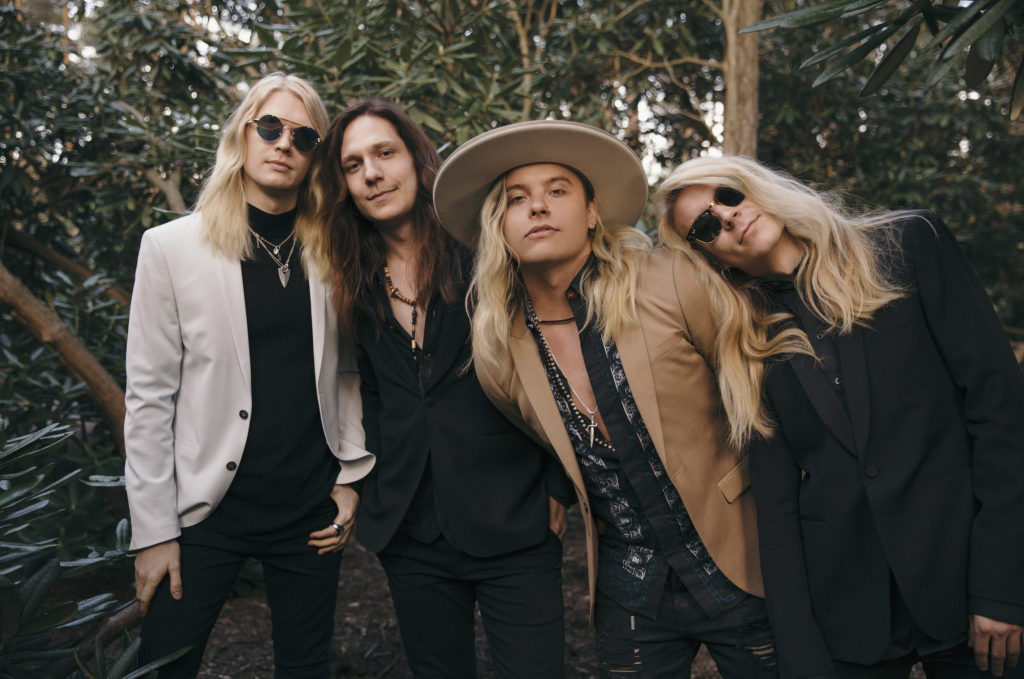
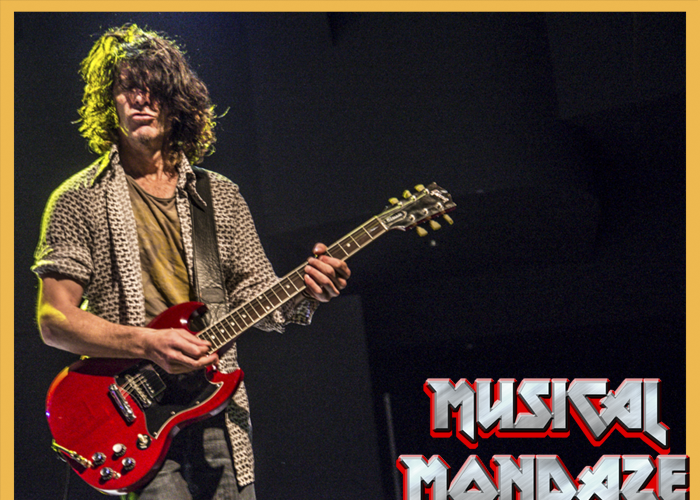

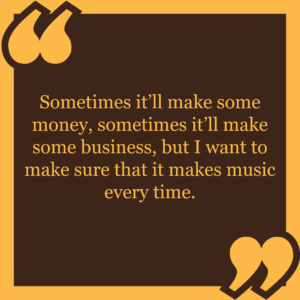 from a different angle, or always relearning or reimagining some aspect of something. Anything that’s worth your time in music, and I suppose you could extend that to business, too… I mean, I’m the type of musician that believes that… I kind of see my job as that I make music. And maybe I like to make ensembles, too. I enjoy doing that. But I make music. I think money and business – that kind of is the secondary thing to that. Sometimes it’ll make some money, sometimes it’ll make some business, but I want to make sure that it makes music every time.
from a different angle, or always relearning or reimagining some aspect of something. Anything that’s worth your time in music, and I suppose you could extend that to business, too… I mean, I’m the type of musician that believes that… I kind of see my job as that I make music. And maybe I like to make ensembles, too. I enjoy doing that. But I make music. I think money and business – that kind of is the secondary thing to that. Sometimes it’ll make some money, sometimes it’ll make some business, but I want to make sure that it makes music every time.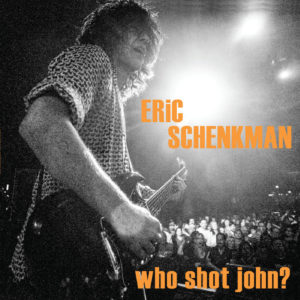 I do a gig weekly where I play three sets a night, and the Spin Doctors used to do that same kind of gig. And if you can stretch out, your playing can get to some real, real fantastic depths, and you need diversity to be able to do that. You need to be a student of music to be able to try to get better at dynamics and all these sorts of things. So, yeah, I started realizing that I had a record. I was like, “Oh, I got to put this out. I haven’t done one of these in a long time.”
I do a gig weekly where I play three sets a night, and the Spin Doctors used to do that same kind of gig. And if you can stretch out, your playing can get to some real, real fantastic depths, and you need diversity to be able to do that. You need to be a student of music to be able to try to get better at dynamics and all these sorts of things. So, yeah, I started realizing that I had a record. I was like, “Oh, I got to put this out. I haven’t done one of these in a long time.”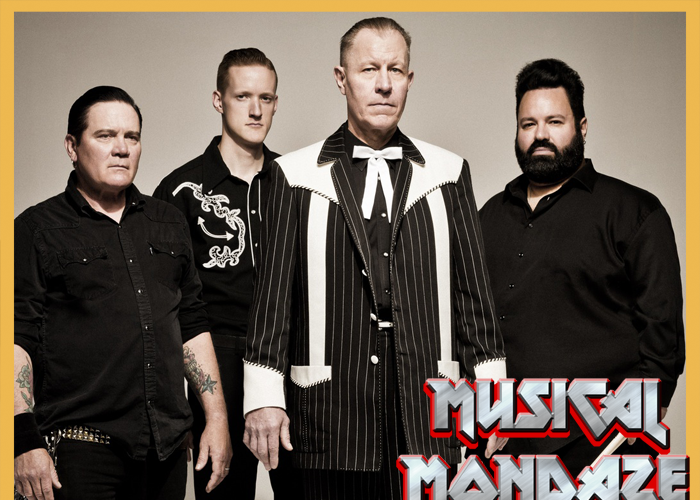
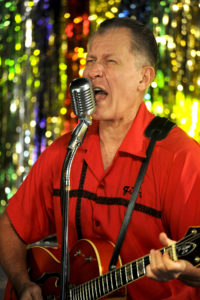
 asked back for a return gig, agents, label reps and all that made every gig pretty important. Now, none of that stuff matters much at all. I get up there, let it rip and have fun, even if it’s 20,000 people. That being said, I don’t enjoy the travel as much, but that’s what has to be done. I do still love hanging out with the guys in my band and crew. We have a lot of fun joking around and stuff.
asked back for a return gig, agents, label reps and all that made every gig pretty important. Now, none of that stuff matters much at all. I get up there, let it rip and have fun, even if it’s 20,000 people. That being said, I don’t enjoy the travel as much, but that’s what has to be done. I do still love hanging out with the guys in my band and crew. We have a lot of fun joking around and stuff.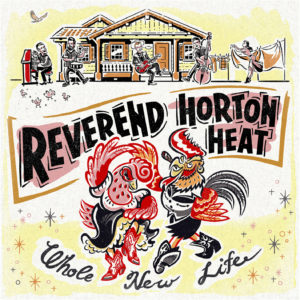 TrunkSpace: Your music is so infectious it could make Bernie from “Weekend at Bernie’s” get up and dance! When you set out to establish your sound all those years ago, was there a plan of attack or did the band’s sonic identity come together organically?
TrunkSpace: Your music is so infectious it could make Bernie from “Weekend at Bernie’s” get up and dance! When you set out to establish your sound all those years ago, was there a plan of attack or did the band’s sonic identity come together organically?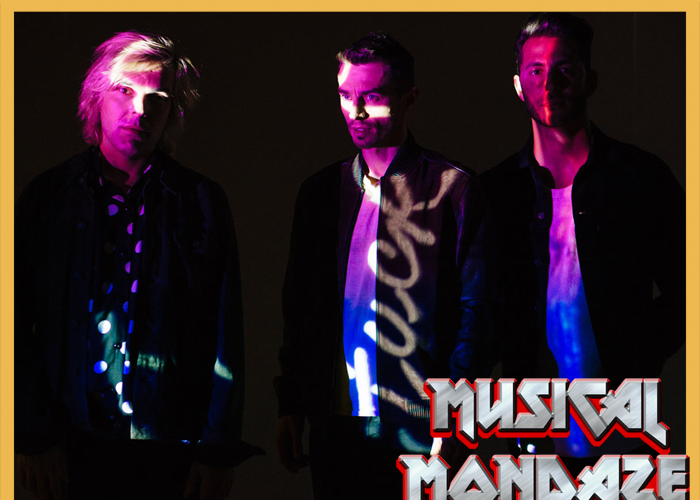
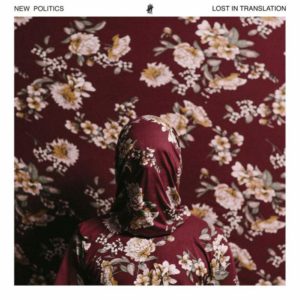 With four studio albums under their belts, including last year’s “Lost In Translation,” New Politics has amassed a passionate international fanbase through extensive touring and by dropping catchy singles like “Tonight You’re Perfect” and “Yeah, Yeah, Yeah.” Currently the chart-topping trio is in the final stretch of a US tour, partnering with Music Saves Lives to bring awareness to the ongoing need for bone marrow donors.
With four studio albums under their belts, including last year’s “Lost In Translation,” New Politics has amassed a passionate international fanbase through extensive touring and by dropping catchy singles like “Tonight You’re Perfect” and “Yeah, Yeah, Yeah.” Currently the chart-topping trio is in the final stretch of a US tour, partnering with Music Saves Lives to bring awareness to the ongoing need for bone marrow donors.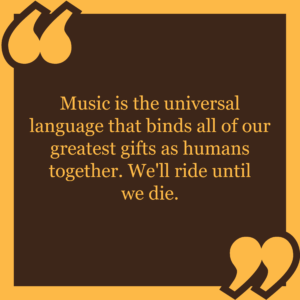

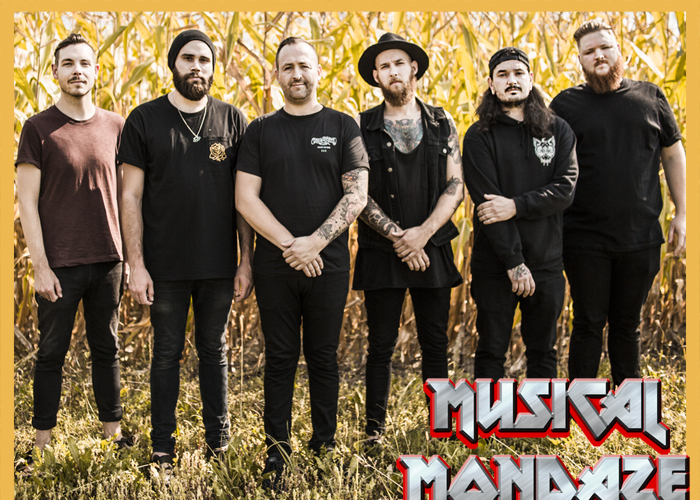
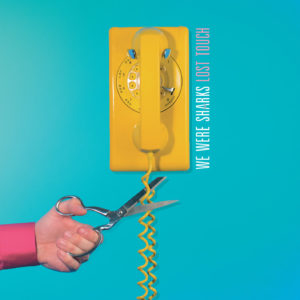 Like certain shark breeds and their inability to remain still even while sleeping, Canadian pop/punk rockers We Were Sharks are constantly swimming, touring relentlessly in support of their infectious music. Their latest album, “Lost Touch,” was released earlier this year on Victory Records to both critical and fan praise.
Like certain shark breeds and their inability to remain still even while sleeping, Canadian pop/punk rockers We Were Sharks are constantly swimming, touring relentlessly in support of their infectious music. Their latest album, “Lost Touch,” was released earlier this year on Victory Records to both critical and fan praise.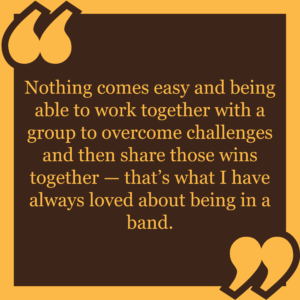 didn’t think it was going to make it into the live catalog. We began playing it live and it has had an awesome reaction. We’ve had show-goers tell us that it’s their favorite song, or they come up before the set and tell us that they hope we play it.
didn’t think it was going to make it into the live catalog. We began playing it live and it has had an awesome reaction. We’ve had show-goers tell us that it’s their favorite song, or they come up before the set and tell us that they hope we play it.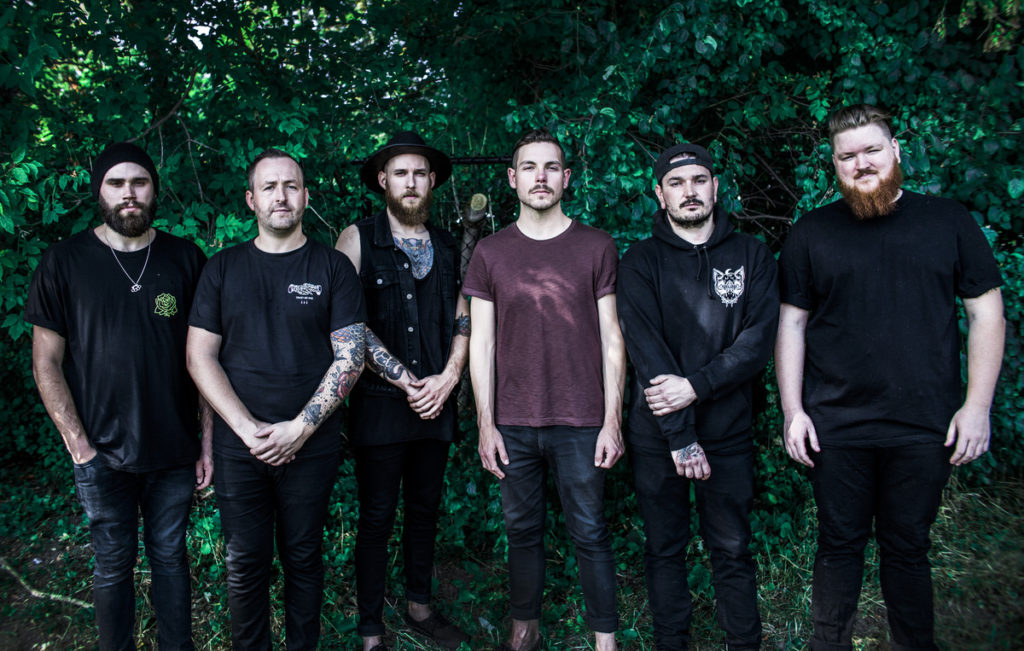
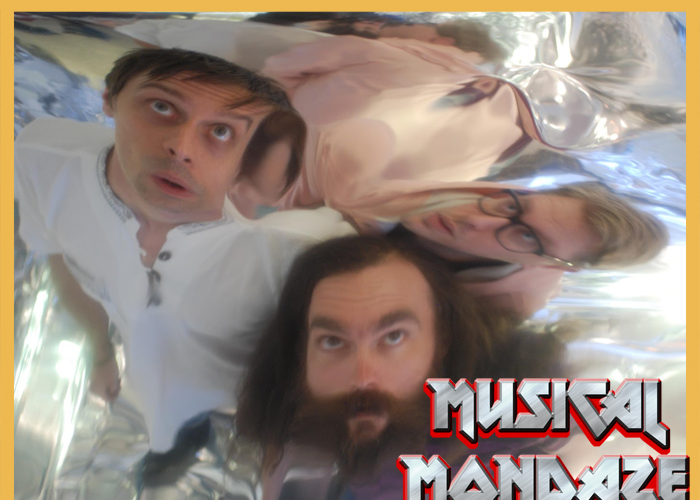
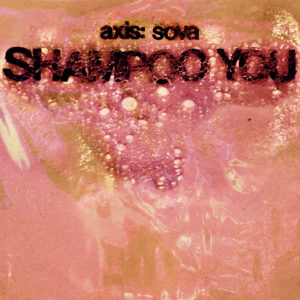
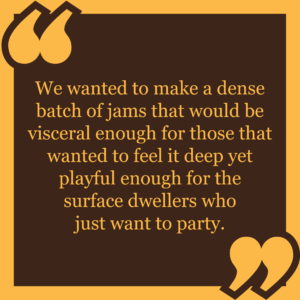 into someone else’s, the listener gets to come up with their own version of what a song might be about, or what it means to them. I don’t wanna spoil that for anybody.
into someone else’s, the listener gets to come up with their own version of what a song might be about, or what it means to them. I don’t wanna spoil that for anybody.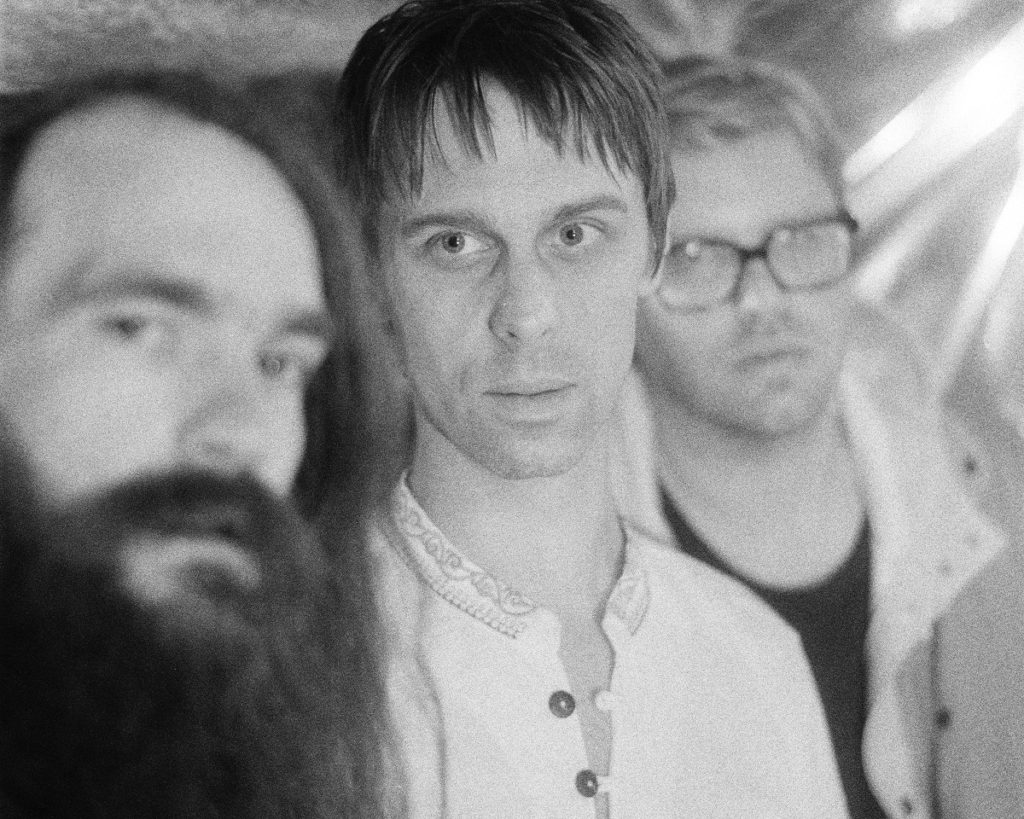
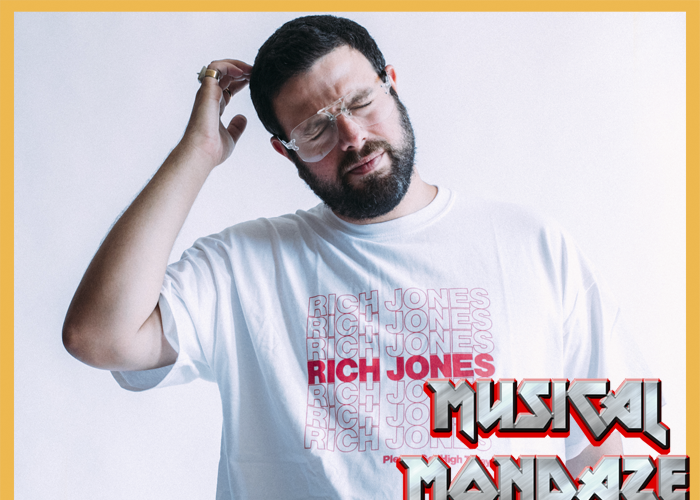

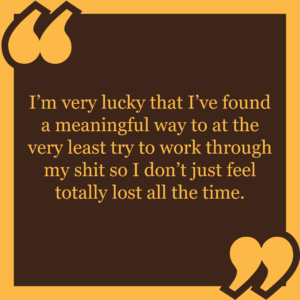 as fans of music. Both of us have catalogs that initially were primarily rooted in hip-hop but we’ve branched out considerably over the years. This project tips its cap to our previous work while also acknowledging who we are now!
as fans of music. Both of us have catalogs that initially were primarily rooted in hip-hop but we’ve branched out considerably over the years. This project tips its cap to our previous work while also acknowledging who we are now!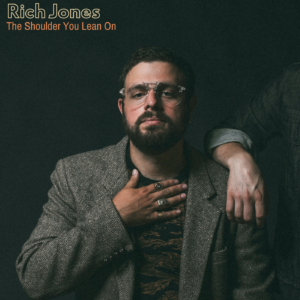 TrunkSpace: We started our chat by talking about Chicago and local music scenes. As a career progresses and a fan base grows, does it become difficult for a single city to support the music? Does it become a juggling act to nurture a career within a scene but not to over saturate?
TrunkSpace: We started our chat by talking about Chicago and local music scenes. As a career progresses and a fan base grows, does it become difficult for a single city to support the music? Does it become a juggling act to nurture a career within a scene but not to over saturate?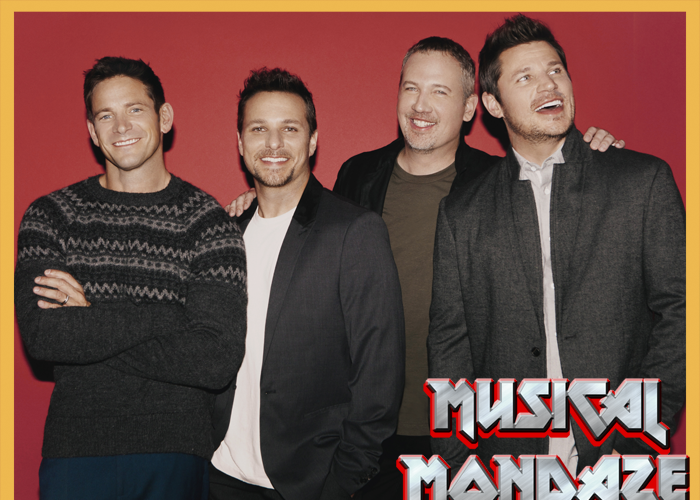
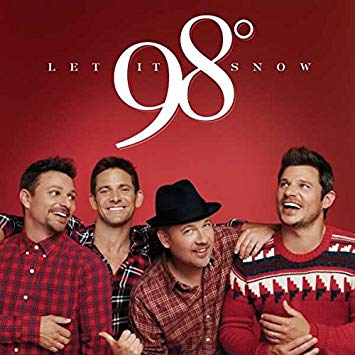 Throughout their career, 98° has been labeled and marketed as a “boy band,” but their creative roots stretch much deeper than that. Inspired by R&B acts like Boyz II Men, the Four Tops and Stevie Wonder, the vocally-driven quartet began their musical journey as an a capella group before becoming international pop stars thanks to hits like “Because of You” and “I Do.”
Throughout their career, 98° has been labeled and marketed as a “boy band,” but their creative roots stretch much deeper than that. Inspired by R&B acts like Boyz II Men, the Four Tops and Stevie Wonder, the vocally-driven quartet began their musical journey as an a capella group before becoming international pop stars thanks to hits like “Because of You” and “I Do.”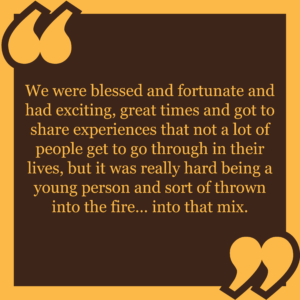 stressful. We’ve experienced huge crowds and great turn outs and we’ve experienced no crowd and low turn outs and everything in between, but for us, it does still feel fresh.
stressful. We’ve experienced huge crowds and great turn outs and we’ve experienced no crowd and low turn outs and everything in between, but for us, it does still feel fresh.